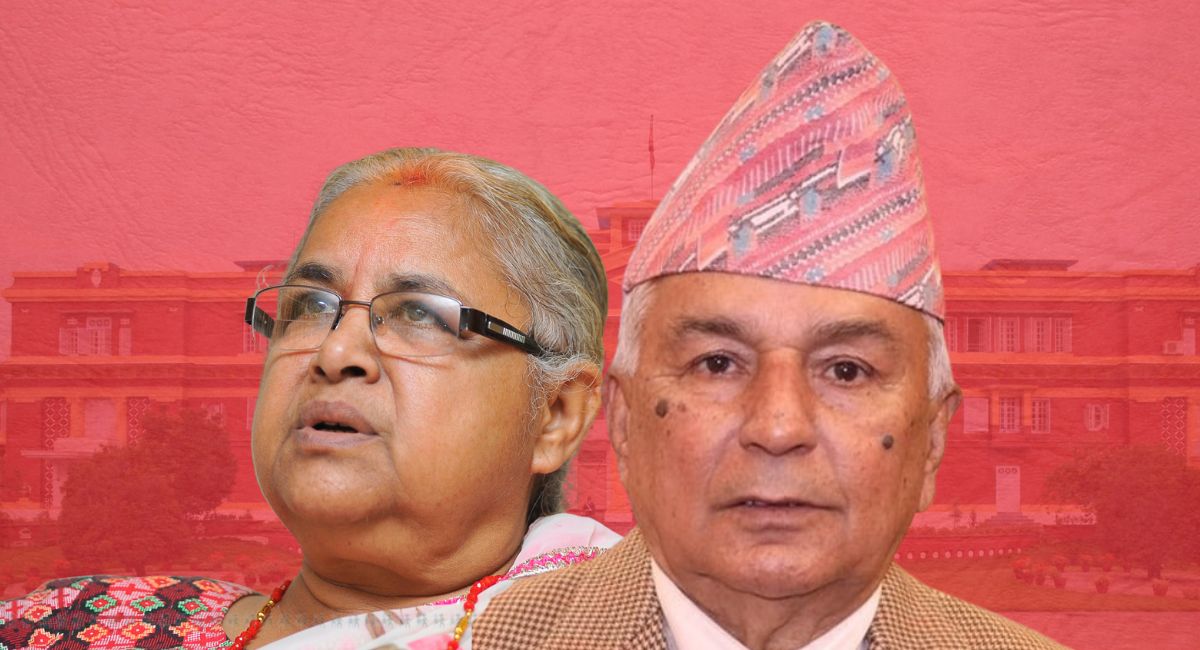Interim Prime Minister Sushila Karki has recommended to the president to issue an ordinance that would suspend the requirement of parliamentary hearings for constitutional appointments during the period when the House of Representatives is dissolved.
Karki has proposed issuing the ordinance by adding a provision to the Constitutional Council-related bill (previously passed by both houses of the dissolved Parliament) that would suspend the hearing requirement when the House of Representatives remains dissolved.
After Prime Minister Karki recommended the ordinance, President Ram Chandra Paudel has found himself in a dilemma. He had previously returned the same bill, passed by both houses of Parliament, to the now-dissolved House of Representatives for reconsideration. Following the Gen Z movement, the president has now received the same provisions back in the form of an ordinance.
Moreover, Article 292 of the Constitution requires parliamentary hearings for appointments as per federal law. The president must now decide whether to issue an ordinance that introduces an exception allowing this requirement to be suspended during House dissolution.
According to sources at the Office of the Prime Minister and Council of Ministers, the ordinance states that parliamentary hearings will not take place while the House is dissolved, and the new House must conduct hearings within 45 days of its formation after the elections.
“If the Council recommends any official for appointment while the House of Representatives is dissolved, there shall be no obstruction to appointing such an official before parliamentary hearing,” the clause titled “No obstruction to appointment before parliamentary hearing” states. “The secretary shall forward in writing to the Office of the President the name of the individual recommended by the Council for appointment.”
According to the ordinance, the secretary must write to the Federal Parliament Secretariat for the parliamentary hearing of the official appointed during House dissolution. If the hearing committee does not approve that appointee within 45 days after the House is formed, the individual will automatically be relieved of the post.
The Constitution of Nepal requires parliamentary hearings before the appointments of the chief justice and other Supreme Court justices, chiefs and members of constitutional bodies, ambassadors, and members of the Judicial Council.
The Constitution provides for a six-member Constitutional Council consisting of the prime minister, speaker, chairperson of the National Assembly, chief justice, deputy speaker, and leader of the opposition. The prime minister serves as the chair of the Council.
According to the earlier bill introduced by the government, recommendations for appointments to constitutional bodies must be made unanimously. However, if unanimity is not achieved, decisions could be made by the prime minister (as chair) and at least 50 percent of the currently serving members.
The State Affairs and Good Governance Committee of the House of Representatives had passed this provision without any changes and sent it to the National Assembly.
In other words, if a unanimous decision cannot be reached, the prime minister and at least 50 percent of the sitting members could make the decision, ensuring a 51 percent vote within the Constitutional Council.
However, the National Assembly added examples regarding quorum and majority when the House of Representatives is dissolved or does not exist. That is, it specified what constitutes a quorum and a majority when the position of leader of the opposition becomes vacant due to dissolution of the House or expiry of its term.
The National Assembly added two sets of examples to the government’s bill, clarifying the numbers required for quorum and majority in different scenarios.
It added a provision stating that the number required for quorum would be:
(a) at least 4, including the chair and at least 3 members, if the chair and 5 members are in office,
(b) at least 3, including the chair and at least 2 members, if the chair and 4 members are in office,
(c) at least 3, including the chair and at least 2 members, if the chair and 3 members are in office,
(d) at least 2, including the chair and at least 1 member, if the chair and 2 members are in office.
Similarly, it defined how many votes would constitute a majority in different scenarios. It said that a decision would be made with:
(a) at least 4 votes, including the chair and at least 3 members, if the chair and 5 members are in office,
(b) at least 3 votes, including the chair and at least 2 members, if the chair and 4 members are in office,
(c) at least 3 votes, including the chair and at least 2 members, if the chair and 3 members are in office,
(d) at least 2 votes, including the chair and at least 1 member, if the chair and 2 members are in office.
The House of Representatives accepted these amendments added by the National Assembly.
However, after the bill was passed by the House and sent for certification, President Paudel returned it on July 24 this year.
At the time, Nepali Congress leader Shekhar Koirala had strongly opposed the bill, saying it attacked the “core values” and heart of the Congress.
Having returned the bill under Congress pressure at the time, President Paudel must now decide whether or not to issue the ordinance containing the very same provisions.

